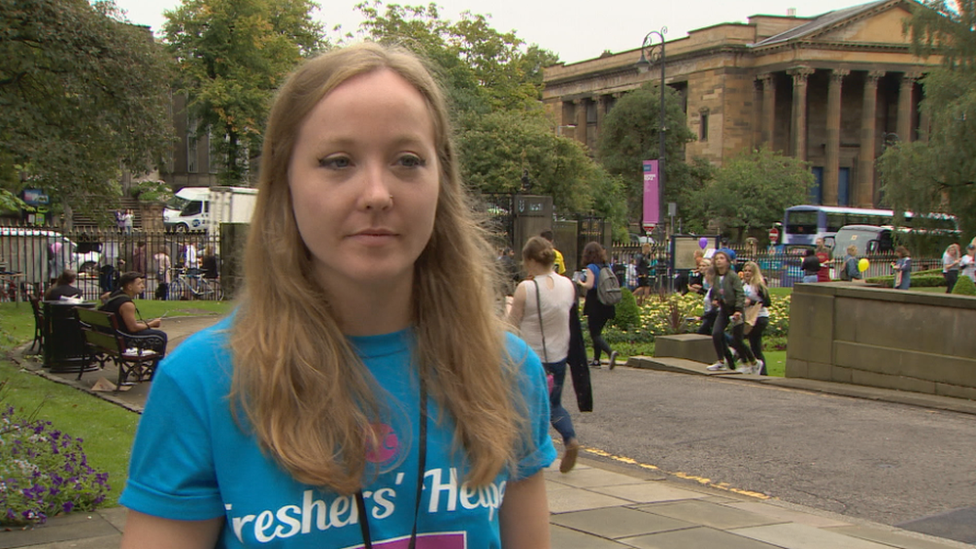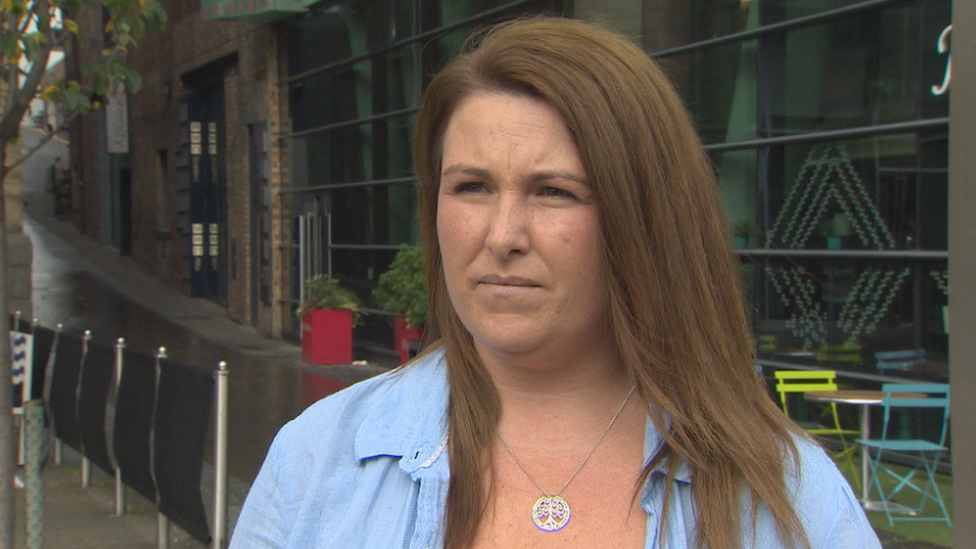Universities tackle sexual assault on campus
- Published

As new students arrive for the start of the academic year, they expect to have the time of their lives. But what should be a fun time is marred by a problem that is particularly evident among young people at university - sexual harassment and violence. This year, several of Scotland's universities have taken steps to tackle the problem.
A report by the National Union of Students (NUS) suggests that one in five students experience some sort of sexual harassment during their first week of term.
Sexual comments, wolf-whistling when students walked into lectures, heckling in nightclub queues and jokes about rape were all cited as examples.
There are not specific statistics available to illustrate how big a problem there is with sexual violence among students, but earlier in 2016, Police Scotland said the number of recorded sexual crimes had increased by 6.2% on the previous 12 months - to 10, 273.
However, they said many of these offences were historical.

One student's story

"I went on a night out with my friends and their flatmates. The more I think about it now, I think I might have had my drink spiked or something similar. I'm not sure.
"I went home with someone, and I don't remember really agreeing to it... I remember not really knowing who he was. My mind kept jumping to being in a taxi with him then being at his house. There's no in-between in my memory.
"And then I found myself being strangled and raped, basically. It was a very, very, scary experience. I thought I couldn't breathe.
"I remember running out of the place. I ran into some workers who helped me get back to the friends who I was out with.
"I didn't even want to phone the police. I didn't realise what had happened to me. It was my best friend at the time who really pushed me to report it. He was the one who dialled the number and calmed me down. He told me I'd been raped. I didn't want to believe it at first - I didn't want it to be real."
Read more here.

But some Scottish universities have taken steps to start tackling the problem - Glasgow University, Glasgow Caledonian University and the University of the West of Scotland are among the universities trying to address the situation on campus.
This freshers' week, Glasgow University and Glasgow Caledonian University have trained up their freshers' helpers to give support and advice to survivors of sexual assault.

Erin Ross thinks the new initiative is a significant step
The Let's Talk initiative is a joint project between the two universities, along with Rape Crisis Scotland and Police Scotland.
The initiative is the outcome of a student-led campaign. It aims to do something to prevent sexual violence - a country-wide problem.
It is part of a wider initiative led jointly by academics, students and staff from both universities who are working together to tackle gender based violence.
Erin Ross is a member of Glasgow University's Students' Representative Council who is responsible for student support.
'Hidden problem'
She said the move was a "significant step on the road to a culture change that will enable students to get involved in challenging attitudes towards sexual violence and be supportive to survivors and victims".
The University of the West of Scotland (UWS) has also launched a new awareness-raising campaign - Standing Safe.

Angela Alexander said reporting channels for sexual harassment and assault should be clear
Dr Kallia Manoussaki, a lecturer in psychology at UWS, leads the project. She said that sexual violence was a "growing but largely hidden problem which is particularly prominent among young people between the ages of 17 and 25."
She added that education institutions had a responsibility to address the problem and stressed the importance of a proactive approach to help students learn about, and prevent, the causes of sexual violence.
Angela Alexander is women's officer at NUS Scotland. She said what was more worrying than the statistics was that many students didn't know how to report these incidents.
She said: "Universities need to make sure that their reporting channels are made clear to students and that the students feel supported.
"When students are starting university, it should be an exciting time. They have to make sure they are aware of what's going on round about them, and make sure they know the process for reporting these crimes if anything should happen to them."